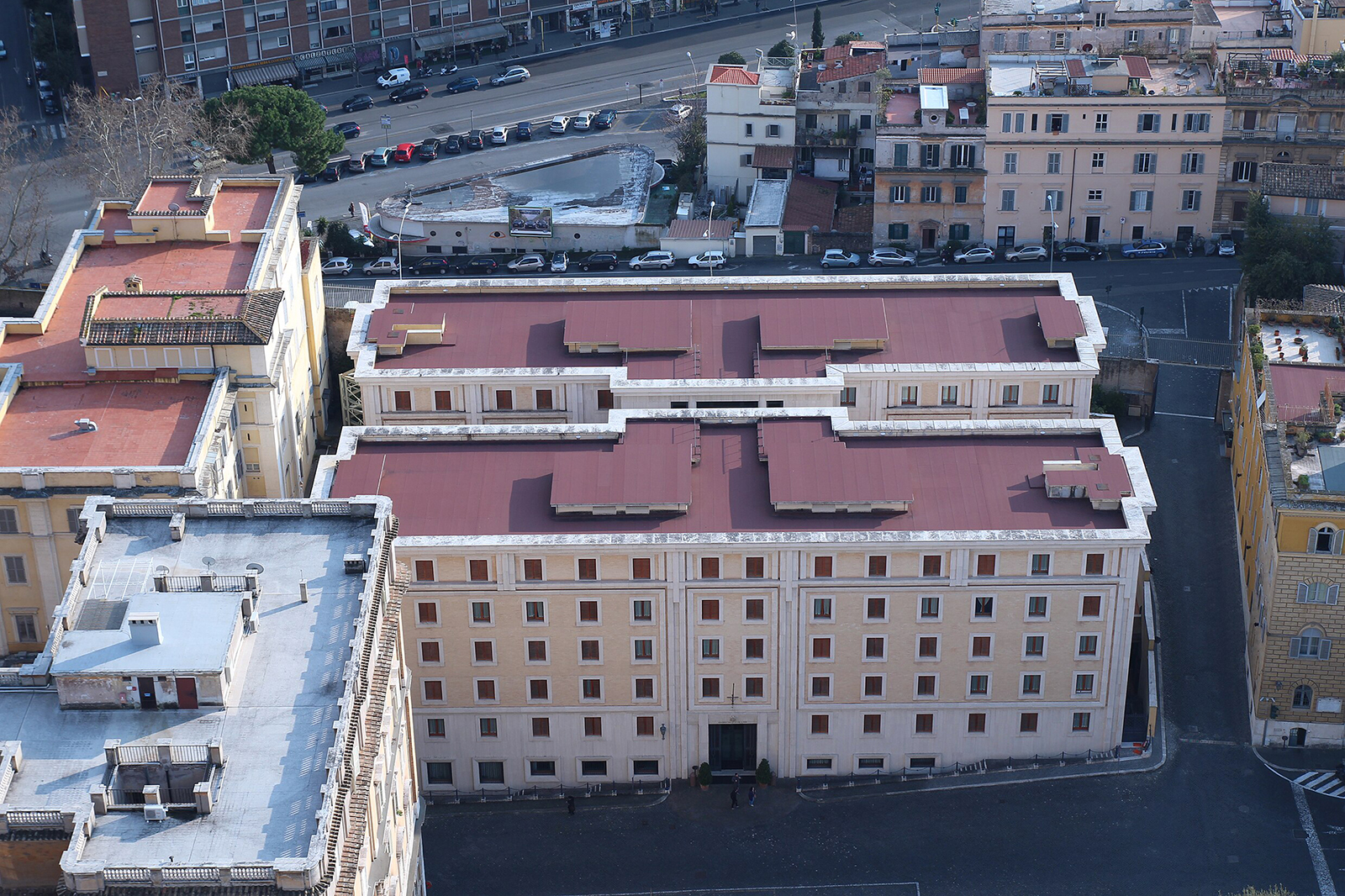
(RNS) — The cardinals who bade farewell to Pope Francis on Saturday (April 26) gathered Monday for their first meetings to discuss the future of the church, known as general congregations, and set the conclave to elect the next pope for May 7, the Vatican confirmed.
There were 180 cardinals present, about 100 of them below the cut-off age of 80 to vote at the conclave, the Vatican announced. About 20 cardinals spoke to the gathering, emphasizing “the main themes of the church, its relationship with the world and the qualities and the characteristics that the next pope will have to have to address them,” the Vatican spokesperson told journalists.
Many cardinals declined to comment on what those characteristics are, continuing a tendency to reticence that became the standard in the last few synods, or churchwide meetings of prelates, at which they took an oath of secrecy at Francis’ behest.
Despite their relative silence, a theme emerging from the early meetings has been the tension between diversity and unity, words that have become shorthand for cardinals to signal their vision for the church’s future.
Saturday’s spontaneous meeting between President Donald Trump and Ukrainian President Volodymyr Zelenskyy before Francis’ funeral underscored the political stakes the cardinals are weighing in the choice of a new pope. While looking to elect a spiritual leader for the world’s 1.4 billion Catholics, many are also considering which of their number is capable of steering the world’s political leaders toward peace, dialogue and other goals of the church.
Of the 135 eligible cardinal-electors, at least one is not expected to attend the conclave. Cardinal Antonio Cañizares Llavera, the retired archbishop of Valencia, Spain, who will turn 80 in October, has pulled out of the conclave because of his health.
Another cardinal, Vinko Puljić, the retired archbishop of Sarajevo, had told journalists he’d also be unable to attend due to health reasons but announced on Thursday that he had been cleared by his doctor and would attend.
The conclave was expected to begin earlier, but the Vatican said it needed more time to prepare the Sistine Chapel for the conclave and establish where all the cardinals will stay. Francis waived a limit of 120 electors set by church law under Pope Paul VI, and the cardinals expected to gather in Rome exceed the ready capacity of the Domus Sanctae Marthae, a guest house near St. Peter’s Basilica, built by Pope John Paul II for the purpose of housing the electors, where Francis lived during his papacy.
The Vatican spokesperson assured reporters that “no one will be left on the street.”
The status of Cardinal Angelo Becciu, who in 2021 was stripped of his rights as a cardinal, but not his title, for his role in a controversial Vatican real estate deal, was discussed at the general congregations meeting, but “no decision has been made on the matter,” the Vatican said.
A Vatican court found the cardinal guilty of embezzlement and fraud in 2022, but Becciu has steadfastly maintained his innocence and said the pope never meant to exclude him from the conclave. According to reports by the Italian newspaper Domani, Cardinal Pietro Parolin, the Vatican secretary of state, told Becciu that there are two documents signed by Francis stating that he would not be allowed to take part in the choosing of his successor.
The Vatican also declined to answer whether Cardinal Juan Luis Cipriani Thorne, who stepped down as Archbishop of Lima, Peru, after abuse allegations were made against him and he was then sanctioned by the Vatican, would be there. Cipriani claims he “never committed any crime” and that the allegations, which date to the 1980s, are false.
